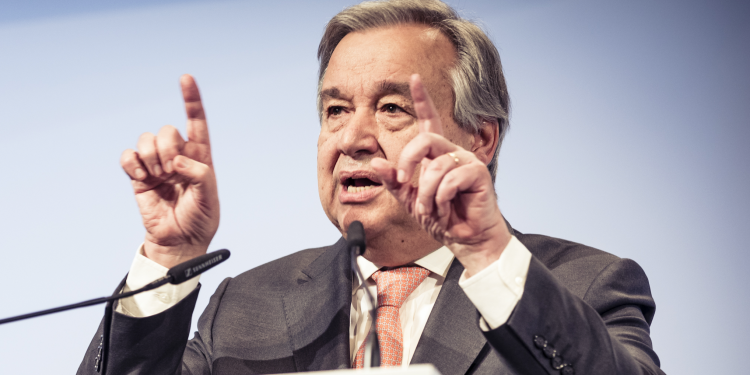The United Nations has adopted a radical new framework that includes the contributions of nature when measuring economic prosperity and human well-being.
The System of Environmental-Economic Accounting—Ecosystem Accounting (SEEA EA), adopted by the UN Statistical Commission, pushes economics past the focus on gross domestic product (GDP), which has dominated reporting since the end of World War II.
The UN says that while GDP does a good job of showing the value of goods and services exchanged in markets, it does not reflect the dependency of the economy on nature, or its impact on nature, such as the deterioration of water quality or the loss of a forest.
“This is a historic step forward in transforming how we view and value nature,” said UN Secretary-General António Guterres.
“We will no longer heedlessly allow environmental destruction and degradation to be considered economic progress.”
The new framework can underpin decision-making at two crucial conferences later this year, COP 15 on Biodiversity in Kunming and the Glasgow Climate Conference, COP 26.
According to a new UN report, Making Peace with Nature, the global economy has grown nearly fivefold over the last 50 years, largely by tripling the extraction of natural resources and energy.
“Governments still direct more than US$5 trillion in subsidies to fossil fuels, non-sustainable agriculture and fishing…”
Over the same time, the world population has increased by a factor of two, to 7.8 billion people. Average prosperity has doubled, but about 1.3 billion people still live in poverty and 700 million are hungry.
“This is a major step forward,” said Inger Andersen, UN Environmental Programme Executive Director.
“The new framework can be a game changer in decision-making. By highlighting the contribution of nature, we now have a tool that allows us to properly view and value nature. It can help bring about a rapid and lasting shift toward sustainability.”
Global warming is set to reach at least 3°C above pre-industrial levels by 2100, yet countries continue to make economic decisions without consideration to environmental impacts, says the UN. Governments are directing more than US$5 trillion in annual subsidies to fossil fuels, non-sustainable agriculture and fishing, non-renewable energy, mining, and transportation.
The new framework recognises that ecosystems deliver important services for people. In essence, they are assets to be maintained, similar to economic assets. For example, forests play a role in providing communities with clean water, serving as natural water filters with trees, plants and other characteristics, such as soil depth, that help absorb nutrient pollution like nitrogen and phosphorous before it can flow into streams, rivers and lakes.
More than 34 countries are compiling ecosystem accounts on an experimental basis. With the adoption of the new accounting recommendations, many more countries are expected to begin implementing the system.
The system is built on five core accounts, compiled using spatially explicit data and information about the ecosystem assets and the ecosystem services they produce.
It also supports thematic accounting which organises data around specific policy-relevant environmental themes, such as biodiversity, climate change, oceans and urban areas. Other important thematic accounts would include accounting for protected areas, wetlands and forests.























